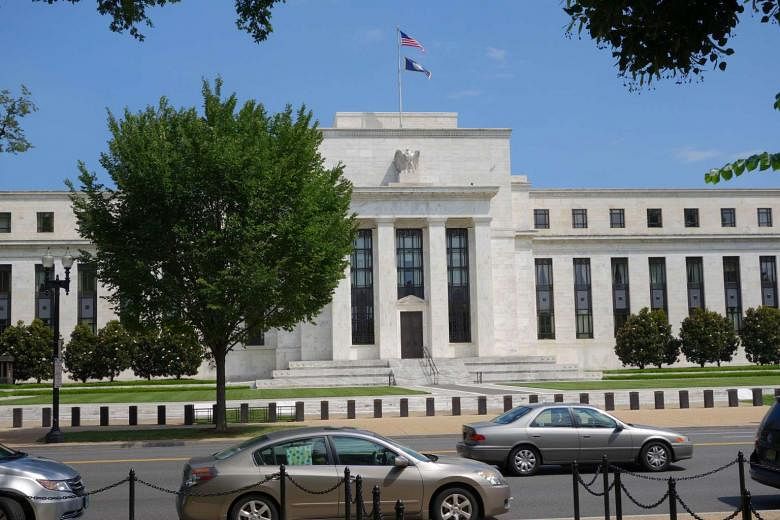Central banks are past the point of having to worry about withdrawing the punch bowl before the party gets out of hand. It's already running dry.
Where ongoing easy money would have been a recipe for rising stocks, the US Federal Reserve's decision not to end its zero interest rate policy last week sent stocks tumbling.
It is not just the Fed.
The Euro Stoxx 50 Index fell 2.75 per cent the day after European Central Bank president Mario Draghi signalled more stimulus.
Meanwhile, the Shanghai Composite Index dropped 1.27 per cent the day after the People's Bank of China delivered its fifth rate cut since November on Aug 25.
"Central bankers no longer enjoy the same power to reassure" markets, Ms Michala Marcussen, head of global economics at Societe Generale, said in a report to clients.
She said investors are realising that policymakers are running out of the power to ease credit, weaken currencies and boost confidence seven years after the collapse of Lehman Brothers ushered in an era of free money and quantitative easing.
What's more, the emerging-market boom that helped sustain the global economy lies in tatters.
A survey of 135 clients released last week by the Royal Bank of Scotland (RBS) before the Fed's decision showed 63 per cent now think that monetary policy is losing credibility in financial markets.
"The investor reaction function has clearly changed from QE-positive to worries about too much easing and its collateral damage," said Mr Alberto Gallo, head of macro credit research at RBS.
The new worry is that in losing their ability to pep up equity markets, central banks may also lose another channel to drive their economies - the wealth effect. That's when loose monetary policy drives up stocks, encouraging investors to spend the resulting windfalls on goods and services.
As recently as last month, Federal Reserve Bank of New York president William Dudley noted how market volatility could impede it.
"This is the channel that seems to be fading fast," he said. For the effect to be felt, markets have to hold "some degree of confidence that the real-economy channels of monetary policy accommodation will ultimately work", he said.
BLOOMBERG

